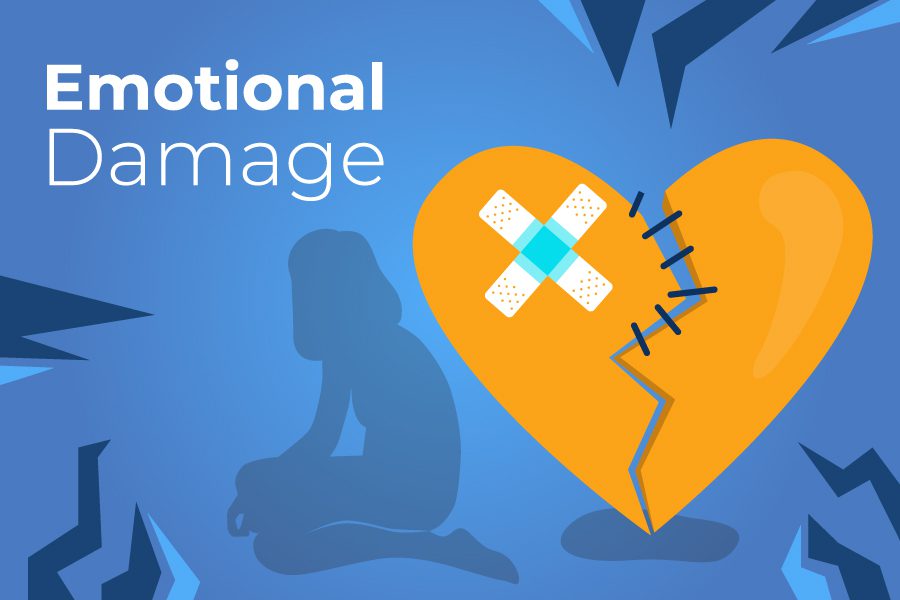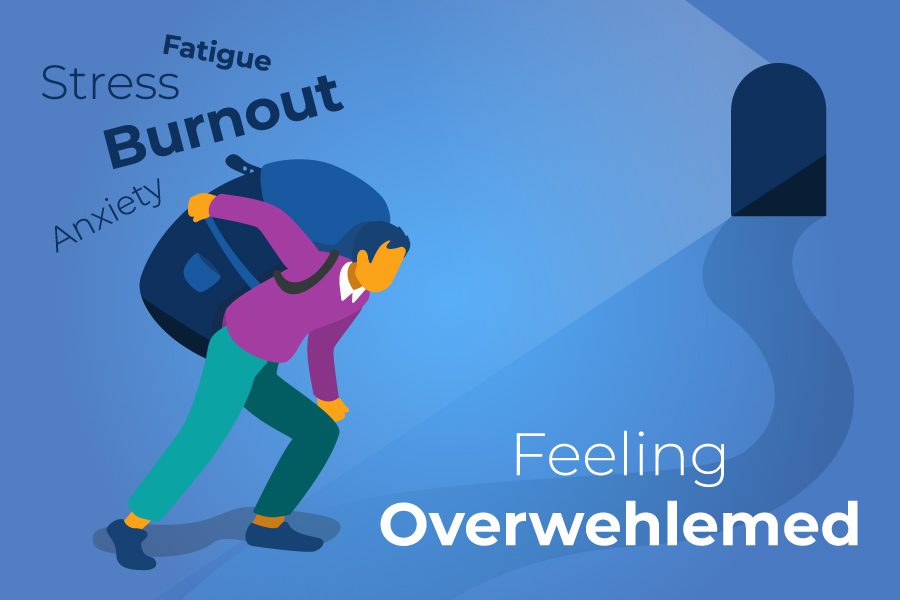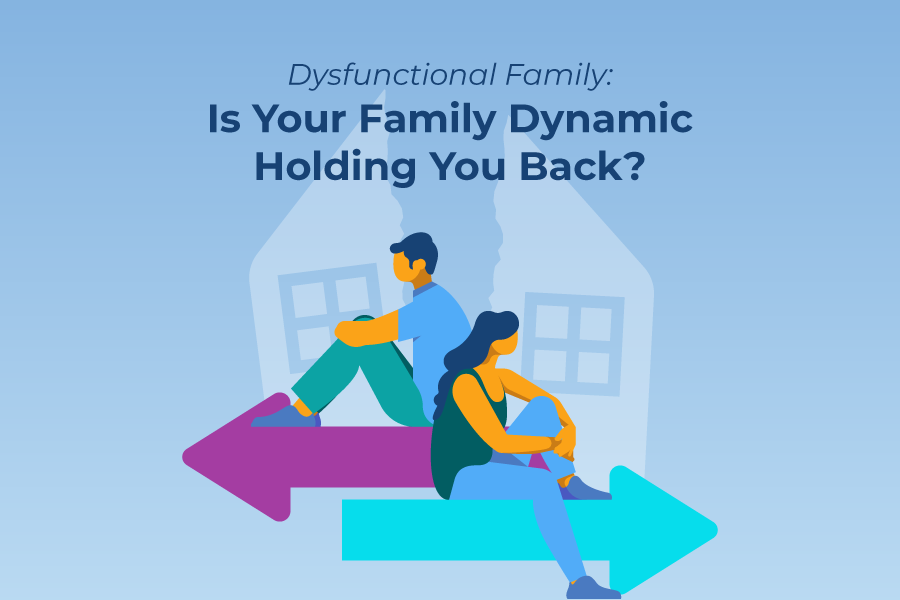Why Do Young Adults Struggle?
Young adults struggle to deal with many changes occurring within a short amount of time that could determine the course of their adult lives.
When adolescents leave high school, they need to make crucial decisions about their futures. They might want to start college or enter the workforce. Many young adults move out of the home and live without parental supervision for the first time.
Coping with these changes is a challenge. You might not be ready for adult decisions or even know what it means to be ready. Some young adults thrive right away, while others try and fail a few times before they find success.
Young adults also don’t have a fully developed brain until around age 25.
The prefrontal cortex continues to develop into young adulthood. This part of the brain is responsible for “higher-order” processes, like decision-making, planning, and judgment. In a way, adolescents are expected to make choices their brains aren’t ready to process yet.
Coping with these changes and dealing with early setbacks or failures can be challenging. Young adults might develop self-esteem problems or mental health issues if they cannot cope with stress in a healthy way.
In addition, some mental illnesses do not emerge until young adulthood.
The added stress of being on their own, loss of parental presence, or a lack of feeling safe and secure can influence a young adult’s mental health and wellbeing.
What Are The Most Common Mental Illnesses In Young Adults?
According to the National Institute of Mental Health (NIMH), “Young adults aged 18-25 years had the highest prevalence of [any mental illness] (29.4%) compared to adults aged 26-49 years (25.0%) and aged 50 and older (14.1%).”
Young adults aged 18-25 with a mental illness are also less likely to get treatment than older adults. Additionally, the NIMH states that while women have a higher prevalence of mental illness than men, men are less likely to enter a treatment program.
With the added stressors of young adulthood, a mental illness might emerge, or a preexisting mental health disorder might worsen.
Adolescents with a mental illness are vulnerable to worsening symptoms as they leave the safety and security of their homes. Young adults might struggle without the structure of their home environments.
Common mental illnesses in young adults include:
- Mood and depressive disorders
- Major or clinical depression
- Persistent depressive disorder (dysthymia)
- Bipolar disorder
- Anxiety disorders
- Social anxiety
- Obsessive-compulsive disorder (OCD)
- Generalized anxiety disorder (GAD)
- Trauma-related disorders, like post-traumatic stress disorder (PTSD)
- Borderline personality disorder
- Symptoms of severe mental illness and psychosis can emerge, like:
- Schizophrenia
- Schizo-affective disorder
- Mood disorders with psychotic features
- Developmental disorders and learning disabilities can be more challenging as adults, like:
- Autism spectrum disorder (ASD)
- Attention-deficit/hyperactivity disorder (ADHD)
Without the protection of their parents, young adults might use drugs or alcohol to cope with these issues. They could develop a substance use disorder if they use drugs and alcohol to deal with negative feelings or self-medicate for underlying problems.
If your young adult child cannot navigate adulthood and independence, they might have self-esteem or mental health issues. Warning signs that your loved one is struggling could indicate the need for an intervention to help them grow and thrive.
What Are The Warning Signs Of A Young Adult Struggling?
Warning signs of a young adult struggling can be similar to the warning signs of a mental illness, including:
#1. Failing College
Your child might be failing out of college or getting a lower grade point average than expected. College can be stressful for young adults, especially if they are moving far from home. College students are more likely to abuse substances than other young adults.
The National Institute on Alcohol Abuse and Alcoholism (NIAAA) points out that “almost 53 percent of full-time college students ages 18 to 22 drank alcohol in the past month and about 33 percent engaged in binge drinking during that same time frame.”
However, parents can be a protective factor to positively influence behavior around drinking. As the NIAAA states, “Research shows that students who choose not to drink often do so because their parents discussed alcohol use and its adverse consequences with them.”
#2. Losing Their Job
If your child entered the workforce after high school, they might change jobs as they explore their future career path. However, if your child gets fired suddenly, they might be struggling.
Of course, layoffs can occur beyond your adult child’s control. They might have a hard time getting back on their feet. It might take them a few days to accept what’s happened before they take action to move on.
If your child gets fired for frequent absences, substance use on the job, conflicts with supervisors or co-workers, or a decline in performance, these behaviors could indicate the presence of an underlying problem.
#3. Increased Isolation
When your adult child spends less time with friends and family and more time alone, they could be dealing with something below the surface. Some young adults might feel left behind if their friends moved away after high school.
In addition, your child might be isolated during college if they can’t form friendships with their peers. A common sign of depression and other mental illnesses is being withdrawn and spending more time alone than usual.
#4. Excessive Gaming
Young adults might play video games as a hobby or a way to connect with friends. However, gaming for all hours of the day and late into the night could be excessive and unhealthy.
Video games can be highly addictive, especially if you have no other coping skills. Often, young adults can spend hours alone, forgo other hobbies, or spend all of their time indoors if they are addicted to gaming.
#5. Spending More Time On Social Media
Social media and technology can also be highly addictive for young adults. They might spend time obsessing over the number of “likes” they get or trying to get the perfect “selfie.”
Many social media apps can help young adults connect with friends and socialize. However, many of these apps can hijack the brain’s reward center. Young adults might use their cell phones to escape or distract themselves from their problems.
#6. Moving Back Home
Sometimes, moving back home could be due to unexpected circumstances. For example, young adults living with a significant other might not be able to afford their own place after a breakup. Job losses during the pandemic caused some young adults to move back home.
Young people who struggle could also move back home if they can’t seem to make it on their own. For parents, it’s essential to be understanding and supportive while also encouraging positive growth and independence.
#7. Change In Mood
One of the most significant symptoms of depression and mental illness is a change in mood. If your adult child has extreme mood swings of irritability and agitation mixed with periods of feeling low and sad, they might have depression or another mood disorder.
When young adults appear down much of the time, they might obsess over death or have suicidal thoughts. Suicidal thoughts and behaviors need to be taken seriously, and it is critical to meet with a mental health professional for help.
#8. Behavior And Personality Changes
Young adults could go through some identity changes as they “try out” new ways of thinking and acting. Usually, these changes and experiments can be healthy. Your child might find like-minded friends when they move away from their hometown and be more like themselves.
However, some personality changes and behaviors could indicate problems, like:
- Self-harm, like cutting or skin-picking
- Alcohol and substance abuse
- Partying several nights each week
- Risky behaviors, like promiscuity or reckless driving
- Legal issues
- Conflicts with friends and family members
- Some behavioral changes could be a maladaptive response to trauma or disorders like borderline personality disorder (BPD).
#9. Becoming A Financial Burden
Your young adult child might choose to stay home after high school if they aren’t sure what their next steps are. They might be saving money to move out on their own, commute to college to cut down on costs, or cannot afford rent even if they are working.
When your adult child becomes a financial burden to you, they might be struggling to move forward as an adult. If your child continues to live with you but is not working or going to school or contributing to the home, you might want to set conditions, like:
- You can stay here rent-free, but you need to apply for one job per day
- If your grades drop below a certain GPA, you’ll need to contribute financially to the household expenses
- You can stay with us to get back on your feet, but only after you attend drug and alcohol rehab
#10. Appetite And Weight Change
Weight loss and gain could be signs of mental health issues like depression, anxiety, or eating disorders. Changes in appetite could also be due to substance abuse, as drugs and alcohol can suppress or increase your appetite.
Your adult child might gain or lose weight as part of a planned diet and exercise routine. Some young adults might continue to gain body mass naturally as they get older or lose weight if they struggle with obesity.
However, weight and appetite changes due to mental health and substance use disorders might be sudden, drastic, or unhealthy.
#11. Irregular Sleep Patterns
Excessive worry and doubt can cause irregular sleep patterns in young adults. Your child might have a lot of fears about growing up and making adult decisions. These thoughts can be intrusive, leading to difficulty sleeping.
In addition, sleeping too much or too little could also be a sign of depression, mood disorders, anxiety disorders, or substance abuse. Nearly every mental illness and substance use disorder will cause irregular sleep patterns.
#12. Lack Of Motivation
When young adults are not motivated to move forward in life, they might be struggling with indecision due to low self-esteem, depression, anxiety, substance abuse, or they haven’t found a purpose.
A lack of interest or passion in life can be a sign that your adult child has no motivation. They might not know themselves very well and need to explore new hobbies. When nothing is driving your child to succeed, they might be too comfortable with how things are.
A lack of motivation could also lead to your child not engaging in self-care or other activities to promote wellbeing. If your child has a “nothing matters” attitude, they might struggle to feel hopeful about their future and be unmotivated to make positive changes.
Look For Significant Changes
You always want to look for significant changes to indicate a mental health or substance abuse issue.
When determining if your child is struggling with an underlying issue, you want to notice any seemingly unprovoked or sudden changes in their overall personality. Some of the warning signs might occur temporarily tied to a life change.
Sometimes, your child could be dealing with a stressful event that they are getting through. However, when these struggles or personality changes seem to linger after a few weeks or months, they might need additional support to move on.
What Is Failure To Launch In Young Adults?
Failure to launch is a syndrome that might occur in young adults who struggle to find their place in the world after high school.
Many of the signs that your adult child is struggling could contribute to a failure to launch. This term is generally used to describe young adults who don’t seem motivated or interested in living on their own, forming romantic relationships, or pursuing a career path.
Sometimes, failure to launch occurs due to external issues beyond your adult child’s control, such as:
- Natural disasters, like the recent pandemic
- Mental illnesses that don’t develop until young adulthood, like schizophrenia
- Financial hardships, like being laid-off or student loan debt
- Break up with a significant other
- Traumatic experiences
- Physical or developmental disabilities
- Developing a substance use disorder
Failure to launch and struggling usually go hand in hand. Your adult child most likely wants to move forward but cannot seem to get their lives together. They might be impulsive, get caught up in an unhealthy relationship, or become addicted to drugs and alcohol.
Your adult child might also be unmotivated to make changes in their lives if they are too comfortable, lack confidence, don’t feel supported, or feel unready to enter adulthood.
How Do You Deal With Unmotivated Young Adults?
Helping an unmotivated young adult requires understanding why they aren’t motivated in the first place.
Parents might think their child is being lazy or entitled by refusing to “grow up.” When you see these signs, it is essential to approach your young adult child in a non-judgmental manner. They could be dealing with issues causing them to have difficulty in life.
Your young adult child will only continue to struggle as an adult if underlying issues like mental illness and substance abuse are not dealt with.
A lack of motivation can require some understanding and support. If your child is struggling, they might need to take a step back to recover from an underlying issue. If they don’t have healthy coping skills for stress, they might not feel ready to get out on their own.
Your young adult child also needs unconditional love and support to find themselves.
When you let your adult child know that you will be there for them no matter what, they can start to feel confident in making mistakes and exploring what they want in life. Part of learning what you want is having the space to make mistakes.
Young adults with underlying problems might need a supportive place to heal before managing the stress of young adulthood and independence.
How Do You Support Young Adults With Mental Health And Substance Use Disorders?
If your young adult child has an underlying mental health or substance use disorder, it is important to find treatment before expecting them to live on their own successfully.
Your child might need help from a treatment program to gain healthy coping skills to deal with the challenges of young adulthood. Mental illness and substance abuse are often due to maladaptive coping mechanisms that no longer work.
Your adult child could benefit from outpatient mental health and behavior therapy or an inpatient residential rehab if they have severe issues with drugs and alcohol. Support groups can also help your child find others struggling, so they don’t feel alone or shamed.
Remember that the transition from childhood to adulthood isn’t always easy.
Young adulthood is challenging as adolescents lose the safety net they’ve been accustomed to during their high school years. Some kids move forward easily, while others need additional support and guidance.
If you feel unsure or overwhelmed as your young adult child appears to struggle, you can reach out for help today. Speak with your health care provider or a mental health professional about treatment options to help your child thrive as a healthy and happy young adult.
If your young adult child shows signs of struggling, they might need additional support from professionals during inpatient or outpatient treatment. Sandstone Care is here to support young adults with substance use and mental health disorders. Call (888) 850-1890.







